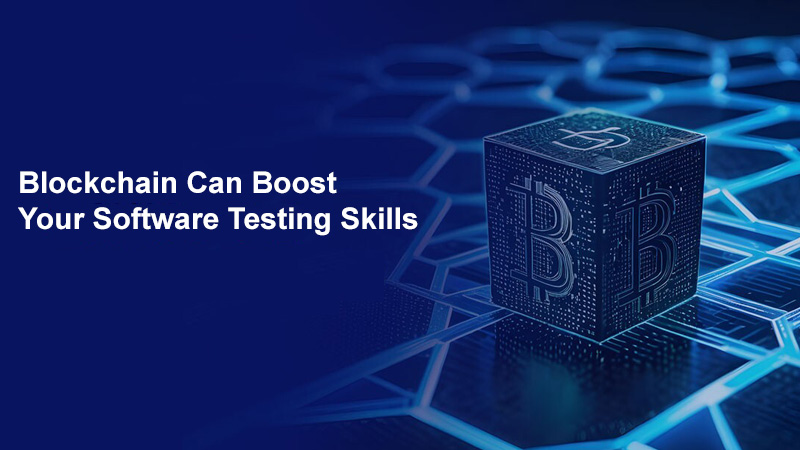How Blockchain Can Boost Your Software Testing Skills in 2024

Software testing is a dynamic field, and given its current state and prospects, testers are expected to keep up to date with the trend. With the advancement and growth of the technology industry, different new tools and methodologies are being developed to help in the production line and ensure productivity. Blockchain is one of the technologies that have gained global popularity in the last few years. In this article, we will address how blockchain will help you improve your software testing skills in 2024.
Understanding Blockchain Technology
Understanding blockchain technology basics is essential to determine how it can be implemented in software testing. Blockchain is the unchangeable and unhackable decentralized and distributed ledger on many computers that maintain records of all transactions. The blocks in this chain incorporate the hash of the previous block, which results in an immutable record.
Cryptocurrencies such as Bitcoin and Ethereum are the most well-known applications of blockchain technology. Nonetheless, it goes far beyond finance. Blockchain might be advantageous in supply chain management, healthcare, voting systems, and a lot more. In the context of software testing, this technology also offers several features that could improve our testers’ talents and abilities.
Enhanced Security and Data Integrity
The core technology of blockchain is security and data integrity. The process of encryption is known as cryptography, which indicates that the data is transformed into an unrecognizable code. The assurance from the function is that it is very secure without repetition. This makes it impossible to alter the data.
In this regard, for software testers, further enhanced security and data integrity enable more effective and precise testing. It is important that test data preserved on the blockchain is more reliable and thus cannot be harmfully affected or tampered with. Therefore, the use of blockchain technology can contribute to a more reliable and safe test environment, test data, and identified results.
Streamlined Test Automation
Moreover, blockchain technology brings new possibilities for the improvement of test automation. For instance, smart contracts, or self-executing contracts where the negotiated agreements are encoded, can be utilized. They are automated on blockchain networks using triggering assigned notifications, reminders, or any other activity after the pre-established threshold is achieved.
Smart contracts can be utilized in positive scenarios to automate the implementation of test cases, validation, and reporting. This reduces the reliance on manual intervention and thus minimizes the risk of human mistakes. Testers can create smart contracts that lay out the terms for testing and test creation, set acceptance criteria, and execute actions based on test outcomes.
With the above information, testers can increase their test coverage, execute their tests faster, and increase their testing process’s overall efficiency with smart contracts based on blockchain technology. This helps teams develop high-quality software faster and more confidently.
Transparent and Auditable Testing Processes
Regulated industries, such as finance, healthcare, and governments among others, require the software testing process to be transparent and auditable. Being able to provide a record of procedures and transactions that is visible and permanent, the blockchain can be used to ensure that the testing process was approved correctly.
Audit test activities including creating test cases, executing test cases, and recording results can leave digital footprints that testers/hackers can later refer to. Let’s put it this way, it ensures that the way testing is done is transparent enough to build trust amongst all that is invested in the testing process.
Conclusion
Blockchain technology opens a new era for software testing, offering testers the opportunity to provide their clients with even better products and services after 2024. Enhanced security measures, data consistency, automation, and transparency are the key benefits testers can leverage to improve their skills and productivity, deliver better solutions, and achieve more consistent results. As blockchain technology evolves further, it will shape the future of software testing and empower testers to remain some steps ahead and surpass everybody in their professional growth.
Include the following in testing: By incorporating blockchain technology in their arsenal of skills, testers can set themselves up to be very vital to their organizations and nature relevancy in an increasingly complicated and competitive landscape.
Furthermore, by acquiring numerous ins and outs of the use of blockchain technology in their skill set, testers can become invaluable to their employers and stay ahead of the curve in the rapidly expanding and increasingly competitive business environment.

Software Testing Lead providing quality content related to software testing, security testing, agile testing, quality assurance, and beta testing. You can publish your good content on STL.




